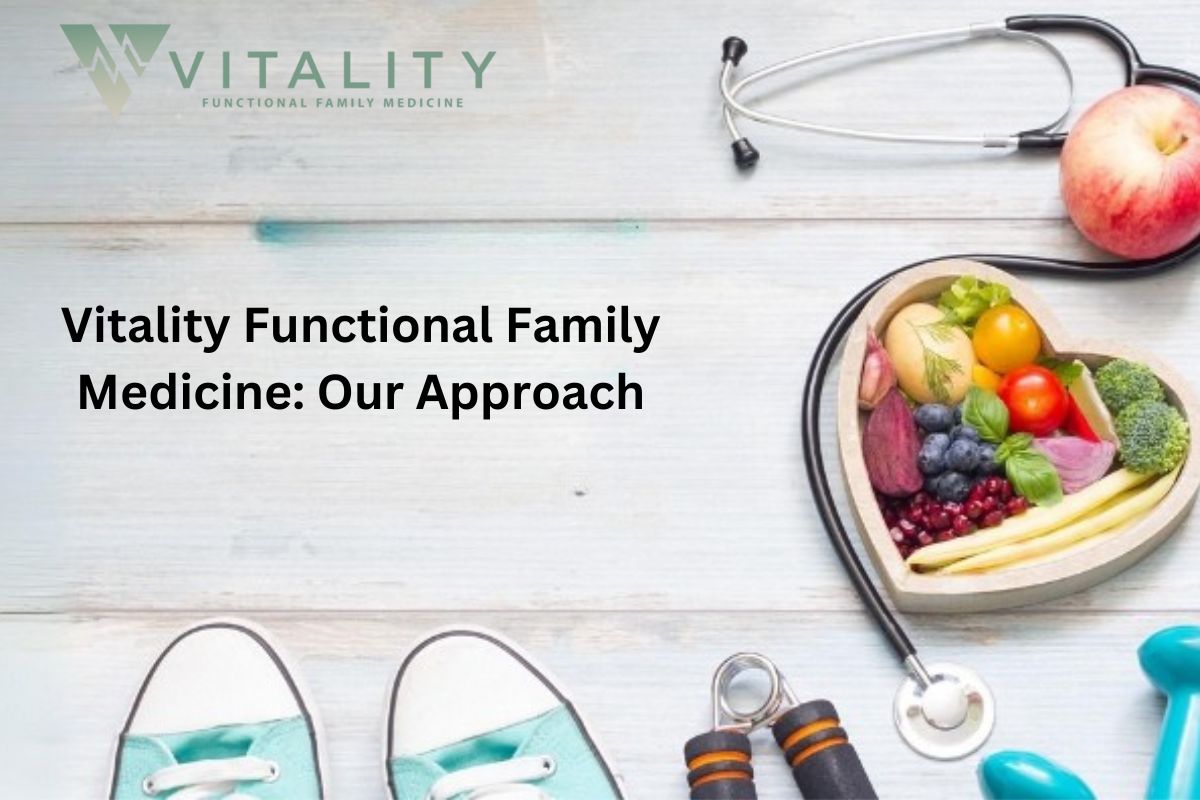In today’s fast-paced world, mental health challenges have become increasingly prevalent. From stress and anxiety to depression and burnout, finding effective treatments is a priority for many. Holistic medicine for mental health offers a comprehensive, person-centered approach that addresses the mind, body, and spirit, helping individuals achieve optimal mental wellness. Let’s explore how holistic methods can transform mental health care.
Understanding Holistic Medicine in Mental Health
A holistic approach to mental health means recognizing that emotional well-being is deeply connected to physical, mental, spiritual, and behavioral health. This perspective opens doors to innovative and integrative therapies that address the root causes of mental health challenges while promoting overall harmony.
Defining Holistic Medicine
Holistic medicine focuses on treating the whole person rather than just the symptoms of a condition. This approach emphasizes physical, emotional, mental, and spiritual health interconnectedness. By addressing all aspects of well-being, holistic medicine seeks to identify and treat the root causes of mental health challenges. Practices like ayurvedic medicine, traditional Chinese medicine, and herbal remedies endorsed by organizations like the British Herbal Medicine Association (BHMA) and the National Institute of Medical Herbalists (NIMH) have long supported these principles.
The Role of Holistic Medicine in Mental Health Care
In mental health care, holistic medicine aims to create a balanced, harmonious state of well-being. It incorporates various therapies and practices, from natural remedies to lifestyle adjustments, to help individuals regain mental clarity and emotional resilience. Holistic medicine mental health approaches often include yoga, guided imagery, and stress reduction techniques such as progressive muscle relaxation (PMR). This approach is particularly valuable for those seeking alternative mental health treatments or wishing to complement conventional methods with additional support.
During the last decade, Holistic medicine has developed its philosophical positions and is today an independent medical system capable of effectively addressing mental health issues. Its treatments offer long-term value for patients, often at a lower financial cost and with minimal to no side effects.
Alternative Mental Health Treatments
Exploring alternative mental health treatments can provide innovative options for those seeking relief from mental health challenges. These therapies complement traditional approaches, offering diverse paths to achieving emotional well-being.
Complementary and Alternative Therapies
Complementary and alternative therapies play a significant role in holistic mental health care. These include practices like acupuncture, aromatherapy, yoga, meditation, and qigong. Each therapy offers unique benefits, such as reducing stress, improving sleep, and enhancing emotional balance.
For example, mindfulness meditation has been shown to alleviate symptoms of anxiety and depression, while acupuncture can help regulate energy flow and reduce feelings of tension. Music therapy and art therapy encourage self-expression, fostering emotional healing. Pet therapy and equine-assisted psychotherapy provide comfort and connection, significantly reducing stress and anxiety. These therapies work alongside traditional treatments, providing a more comprehensive path to recovery.
Evidence-Based Natural Treatments
Natural treatments supported by scientific research are gaining recognition in mental health. Herbal supplements like St. John’s Wort and adaptogenic herbs like ashwagandha have demonstrated efficacy in managing mild to moderate depression and anxiety. Nutraceuticals such as omega-3 fatty acids, found in fish oil, can support brain health and improve mood stability. Herbal remedies like chamomile, chaste berry, ginkgo biloba, kava, lavender, and valerian promote relaxation and emotional balance. These evidence-based remedies offer gentle yet powerful support for mental wellness.
The National Institutes of Health (NIH) reports that 57.8 million adults live with some form of mental illness. This staggering statistic underscores the growing need for diverse, effective treatment approaches like holistic medicine and alternative therapies.
Functional Medicine and Holistic Health

Functional medicine combines cutting-edge diagnostic tools with a holistic understanding of health, allowing individuals to address the root causes of mental health conditions and achieve comprehensive healing.
Integrating Functional Medicine in Mental Health
Functional medicine, a subset of holistic medicine, dives deep into the biological systems of the body to uncover underlying factors contributing to mental health issues. This approach uses advanced diagnostic tools to assess imbalances in hormones, gut health, or nutrient levels that may contribute to conditions like depression or anxiety. Nutritional psychiatry, orthomolecular therapy, and holistic detox protocols are often part of this process. Addressing these root causes through personalized treatment plans helps improve long-term mental health.
Benefits of a Holistic Approach
A holistic approach offers numerous benefits for mental health. Treatments are tailored to each person’s unique needs and circumstances, using techniques like cognitive behavioral therapy (CBT) or hypnotherapy. By addressing the whole person, holistic medicine promotes overall well-being, not just symptom relief. Emotional freedom techniques and relaxation practices can enhance this healing. Furthermore, lifestyle changes and natural treatments foster enduring mental health improvements by focusing on the mind-body connection and addressing underlying causes.
Implementing Holistic Strategies for Mental Wellness
Practical strategies rooted in holistic medicine can empower individuals to take charge of their mental well-being and build sustainable habits that promote lasting health. These approaches include integrating mind-body practices, personalized nutrition, and evidence-based natural remedies into daily routines. By addressing the root causes of mental health challenges, individuals can achieve greater resilience and long-term emotional balance.
Lifestyle Modifications
Simple lifestyle changes can significantly impact mental health. Prioritizing regular exercise, maintaining a consistent sleep schedule, and reducing screen time are foundational to mental wellness. Exercise, in particular, boosts endorphins and reduces stress. Incorporating cognitive behavioral counseling or guided imagery can also improve mental resilience, while light therapy can combat seasonal affective disorder (SAD) effectively.
Mind-Body Practices
Mind-body practices like yoga, tai chi, and meditation are powerful tools for improving mental health. Progressive muscle relaxation (PMR) and qigong reduce stress, enhance mindfulness, and create a sense of inner peace. Spiritual or energy healing and craniosacral massage also promote relaxation and emotional well-being. Breathwork, a key component of many mind-body techniques, can quickly calm the nervous system and improve emotional regulation.
Nutritional and Herbal Supplements
Nutrition plays an important role in mental health. A diet rich in whole foods, including leafy greens, berries, and lean proteins, provides the nutrients needed for optimal brain function. Herbal practitioners often recommend supplements like magnesium, probiotics, and B vitamins to address deficiencies that may contribute to anxiety or depression. Additional supplements such as L-theanine and S-adenosylmethionine (SAMe) support stress reduction and mood stability. Consulting with a healthcare provider ensures safe and effective use of these supplements.
Vitality Functional Family Medicine: Our Approach

At Functional Family Medicine, we integrate holistic and functional medicine to provide personalized care for mental health. Our team combines advanced diagnostics with natural therapies, empowering patients to take charge of their mental well-being. We incorporate therapies like reflexology, nutritional psychiatry, and holistic detox methods to address the root causes of mental health challenges. We help individuals find lasting relief and vitality by promoting alternative mental health strategies.
Seeking Professional Guidance
Navigating mental health treatments can feel overwhelming, but seeking professional guidance ensures that you receive safe and effective care tailored to your unique needs. Contact us to connect with experts who can support you to achieve optimal mental health.
Working with Healthcare Providers
Partnering with healthcare providers skilled in holistic medicine ensures a safe and effective approach to mental health care. They can guide you in combining conventional treatments with complementary therapies, such as herbal medicine or naturopathic psychiatry, creating a comprehensive plan tailored to your needs.
Integrating Conventional and Holistic Treatments
Holistic medicine doesn’t aim to replace conventional treatments but to enhance them. Integrating therapies like meditation, nutrition, and herbal supplements with traditional approaches such as cognitive behavioral therapy (CBT) or equine-assisted therapy offers the best of both worlds for mental health care. Techniques like emotional freedom technique and aromatherapy can further enhance the treatment process.
Conclusion
Holistic medicine presents a transformative way to address mental health challenges, focusing on whole-person wellness. By integrating complementary therapies, natural treatments, and functional medicine, individuals can find sustainable solutions for emotional and mental resilience. Whether you’re looking to enhance your current treatment plan or explore new paths to wellness, holistic medicine for mental health provides a compassionate, effective approach to mental health care.
FAQs
What is a holistic treatment for mental health?
Holistic treatments for mental health include therapies like mindfulness meditation, yoga, nutritional support, and herbal remedies. Approaches like acupuncture, aromatherapy, and reflexology address the mind, body, and spirit to promote overall wellness.
What is the difference between holistic and functional medicine?
Holistic medicine encompasses a wide range of practices that treat the whole person, including spiritual or energy healing, while functional medicine focuses specifically on identifying and addressing the root causes of health issues using advanced diagnostics and personalized care plans.
How can you manage mental health holistically?
Managing mental health holistically involves lifestyle changes, such as regular exercise and healthy eating, incorporating mind-body practices like meditation and yoga, and using evidence-based natural treatments to support overall well-being. Consulting with a holistic healthcare provider or herbal practitioner can help create an effective, personalized plan.

